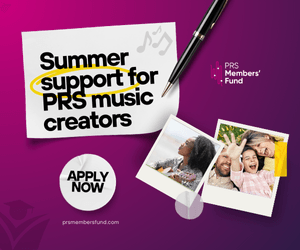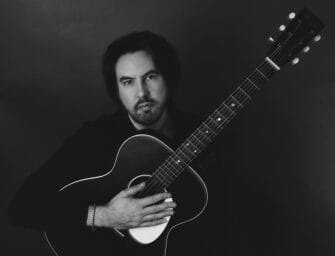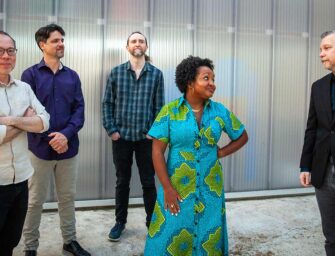
Mike Batt: “If you have an interesting title, you’re halfway there… You can start with the title and then work to the meaning.”
The man behind the music of The Wombles and Katie Melua shares his tips for digging deeper with your songwriting
WHAT DO YOU MEAN?
“When you write a song that you want people to be interested in, it’s a good idea to know what a song is going to be about. It might sound like an obvious thing to say, but not everyone does know. I got into this when someone asked me what I think is more important, tune or lyrics. I always say lyrics because they’re what the meaning of the song is. That, to me, is the essence of the song. That’s not to say that music doesn’t contribute to the mood and the content, it’s just the lyric establishes what it’s about.”
FIND A GREAT TITLE
“What I say to people who I’m advising: if you have an interesting title, you’re halfway there. I’ll often say, ‘Write down 20 great titles.’ Just fill a piece of paper with titles that sound intriguing. I once went through the dictionary writing every interesting and colourful word I noticed. I’d write them down in alphabetical order, by hand, and keep it as part of my lyric-writing kit. When I was stuck, I’d look around, find a little word, put it with something else, and that would kickstart an idea.
“For example, when I was in China with Katie Melua we did a show together and the next day we were being treated to a trip around Beijing and the tour guide said, ‘There are nine million bicycles in Beijing,’ as a pure fact. I looked at Katie and said, ‘Now there’s a song title!’ and she said, ‘You’ve got to be joking!’ Of course, I was half-joking, but I often will be in the middle of something and say that.
“So there I was with that song title scribbled on a bit of paper and when I got home I thought, ‘I’m going to write song.’ Now, you’d expect it to end up as a comedy song – it’s not the most romantic-sounding statement – but I didn’t want to write a comedy song. So I sat down at the piano and thought, ‘What does it mean?’ It’s a piece of trivia, and trivia is the opposite of something that is important. So what’s the most important thing you can ever say to someone? ‘I will love you til I die.’ Therefore, I had…
There are nine million bicycles in Beijing,
That’s a fact, it’s a thing we can’t deny,
Like the fact that I will love you til I die.
“So there you’ve got a construction, which is to juxtapose something that is completely unimportant with something that is desperately important. You start off with the ridiculous and go to the sublime.”
BUT IF YOU HAVEN’T GOT A TITLE…
“You might have something you want to express to someone and you don’t know how to do that until you suddenly come up with an idea. I think it’s a bad idea to sit down and think, ‘Let’s write a hit,’ because everyone unconsciously already thinks that and sometimes it ends up really mechanical. I think it’s important to think of saying it in a way that other people haven’t thought of saying it, or in a way that you haven’t often heard it said. A lot of songwriting is about trying to say something that people hear on the radio or Spotify or whatever and go, ‘Oh my God, I feel that too!’ or ‘I’d never thought of it quite like that.’
“So you can start with the title and then work to the meaning. I’m intrigued by that title, I’m finding it interesting, lyrically, but what does it mean? Or ‘My girlfriend has just left me, and I want to write that down. Oh my God, what happens if I meet her in the supermarket!? Okay, I’ll write a song about that, what shall I call it?”
TELL TALES
“Very often I write songs from experience, but sometimes I’ll make up a plot of a fictitious movie and pretend that some director has asked me to write a song for it. I wrote a song called Warsaw about a girl who was behind the Iron Curtain and couldn’t get out, and he couldn’t get it, and that was where my premise came from. I then projected myself into the characters’ psyche and wrote it from the point of view of this guy who had a girlfriend who he could never visit. So it becomes a story song, but it doesn’t mean you don’t feel it from your heart because you project yourself into the psyche of the people in the song.”
JUST DO IT
“Normally I’d say don’t write for the sake of writing, but sometimes do write for the sake of it. Get a blank piece of paper and, even if you’ve got no real reason to write, just write because it keeps your writing blood going around your brain, and that empty piece of paper can be a challenge that’s very exhilarating. Even if you never use the song, you’ve spent a good hour or two honing your skills and enjoying yourself doing it.”
MAKE A MOVE
“Sometimes when I haven’t had a lyric, I find sitting on a plane or train, that forward motion makes me think about getting somewhere and you tend to want to help that forward motion, mentally, as well. It’s sort of stimulating.”
GO IT ALONE…
“Personally, I prefer to write on my own because I’m not compromising my ideas and I’m not having to be polite to someone all the time about whether I like their ideas or not – equally, they’re not having to be polite to me! I might come up with an idea that I’d normally think, ‘Nah that’s not very good,’ and they say, ‘That’s great.’ They might be right, in which case you keep it, but they might be wrong. What if they’re wrong and you keep it? Also, if I sit down [on my own] I’ll finish it more quickly than if I’ve got to keep discussing it all the time while I’m writing it. Or I might give it to them and say, ‘You finish it,’ for the same reasons – they don’t have to keep asking me what I think!”
…OR GO TOGETHER
“The downside to writing on your own is it’s not as sociable. Even if you’re someone that likes to be in ‘solitary confinement’ and in your own little world, it’s sometimes good to sit down with a trusted friend/songwriter and write a song together. Because if you subscribe to one or other of those methodologies, it’s nice to change the flow occasionally and do it the way you don’t normally do it. So if you work on your own, it’s sometimes nice to work with other people and something will rub off from the way they work as well.”
HAVE A GOOD CRY
“If you feel like you’re welling up slightly while you’re writing, you know your audience has got a good chance to welling up as well. It’s almost like the signal from a record, up through the arm and into the speakers, is the same as a microphone down through the arm from a cutting lathe, to making the record – in other words, the emotions go both ways.”




































Related Articles